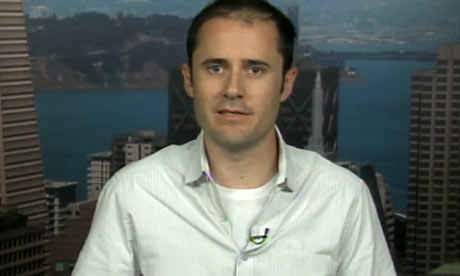 Here is some worthwhile weekend reading. It is a report by the broadcast journalist, Nik Gowing, published this week by Oxford University’s Reuter’s Institute for the Study of Journalism.
Here is some worthwhile weekend reading. It is a report by the broadcast journalist, Nik Gowing, published this week by Oxford University’s Reuter’s Institute for the Study of Journalism.
Entitled “Skyful of Lies and Black Swans” it looks at how technological changes and the emergence of what he calls ‘information doers’ (essentially social media) is changing the balance of power between institutions and individuals, with this shift being most evident at moments of crisis.
The paper tends to focus on government and politics in terms of the examples it highlights, rather than corporations and boardrooms. It is also more on the observational and assertive side of things and rather light on analysis, in terms of really exposing the key new dynamics of the social media space. However, this is to be expected given that Gowing is a journalist, not an analyst or academic.
I also sense that Gowing himself has not fully grasped the implications of the social media revolution, seeing it as simply an evolution of technology rather than recognising the fundamental breakdown in the relationship between content and distribution that social media represents. He identifies the effects, but not yet fully appreciates the cause. He recognises instances of institutional impotence, but not the fundamental shift from institutions to processes inherent in social media.
It is also a shame that the report itself is not more social media optimised – Gowing doesn’t appear to be available to discuss this on twitter, or have a blog for example and there are no links embedded in the pdf. The opportunity to use this to create a conversation has clearly not been identified! (Update: he is on twitter @NikGowing but not exactly active)
However, minor gripes aside, the real value in this paper is the force with which it makes the point about the level of institutional denial (in governments and boardrooms) about what is happening, together with an identification of the fact that vastly increased speed of response is what crisis management is now all about. Gowing calls this the Tyranny of the Time Line.
Read it and think about your own crisis management preparation and/or level of institutional denial.
 Here is a transcript from the Guardian of the interview last night on the BBC’s Newsnight programme with Evan Williams – founder of Twitter. What it reveals is a curious paradox. One the one hand, the BBC is probably the world’s most progressive media organisation in terms of understanding social media, yet one the other the editorial approach in its traditional programmes and from its traditional journalists appears to display total ignorance and denial of what is happening. Continue reading
Here is a transcript from the Guardian of the interview last night on the BBC’s Newsnight programme with Evan Williams – founder of Twitter. What it reveals is a curious paradox. One the one hand, the BBC is probably the world’s most progressive media organisation in terms of understanding social media, yet one the other the editorial approach in its traditional programmes and from its traditional journalists appears to display total ignorance and denial of what is happening. Continue reading 
 I have recently had reason to focus on the area of monitoring of social media which has involved looking once more at the whole range of black box monitoring solutions that are out there. This has caused me deep feelings of confusion and uncertainty.
I have recently had reason to focus on the area of monitoring of social media which has involved looking once more at the whole range of black box monitoring solutions that are out there. This has caused me deep feelings of confusion and uncertainty. @obionyeaso
@obionyeaso Wired has just published an
Wired has just published an  Telling people that social media is about spaces rather than places draws a blank look from 90 per cent of people. I have therefore been searching for the good old analogy that helps people understand this concept. This search has also been prompted by a current project where a client “wants to be on Twitter” but wants to achieve this is a viral, one Tweet will make me famous, sort of a way and it is important to help them understand why this is unlikely to work.
Telling people that social media is about spaces rather than places draws a blank look from 90 per cent of people. I have therefore been searching for the good old analogy that helps people understand this concept. This search has also been prompted by a current project where a client “wants to be on Twitter” but wants to achieve this is a viral, one Tweet will make me famous, sort of a way and it is important to help them understand why this is unlikely to work. Something seems to have happened to Twitter Search in the last month that, to my mind, is incredibly important. However, I haven’t seen any attention given to it within the broader social media converstaion – especially from the likes of
Something seems to have happened to Twitter Search in the last month that, to my mind, is incredibly important. However, I haven’t seen any attention given to it within the broader social media converstaion – especially from the likes of  A recent
A recent  Here is some worthwhile weekend reading. It is
Here is some worthwhile weekend reading. It is